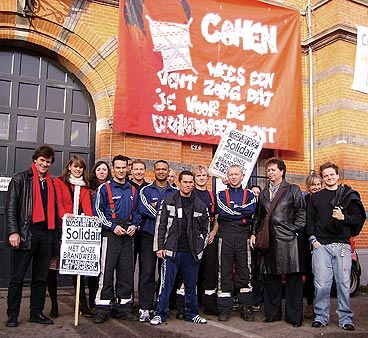That’s three times this week that the NUT, the National Union of Teachers, has impressed me with their plans. It’s not often in this time of sadly defanged unions that you read about a properly militant one, but the NUT seems to have suddenly (?) become one. First there was their threat to call strikes if the government does not give teachers an above inflation pay increase, neatly scuppering Berown’s calls for wage moderation in this time of crisis. (Ever noticed how wage increases for the little people always come at the wrong time?)
then there was their refusal to any longer let the army recruit their cannon fodder in schools:
Paul McGarr, a teacher from east London, said only when recruiting materials gave a true picture of war would he welcome them into his school.
These would have to say: “Join the Army and we will send you to carry out the imperialist occupation of other people’s countries,” Mr McGarr said.
“Join the Army and we will send you to bomb, shoot and possibly torture fellow human beings in other countries.
“Join the Army and we will send you probably poorly equipped into situations where people will try to shoot or kill you because you are occupying other people’s countries.
“Join the Army, and if you survive and come home, possibly injured or mentally damaged, you and your family will be shabbily treated.”
finally there’s Steve Sinnott, the NUT’s general secretary, calling for an end to faith schools:
The National Union of Teachers proposals represent an attempt to rival faith schools. All schools should become practising multi-faith institutions, and faith schools should be stripped of their powers to control their own admissions and select pupils according to their faith, according to proposals in the union’s annual report, backed at its conference in Manchester yesterday. The daily act of “mainly” Christian worship required of all schools by law should be liberalised to include any religion, the union says.
That’s three examples of renewed militantism and a remarkable display of common sense in one week. Must be some kind of record.
